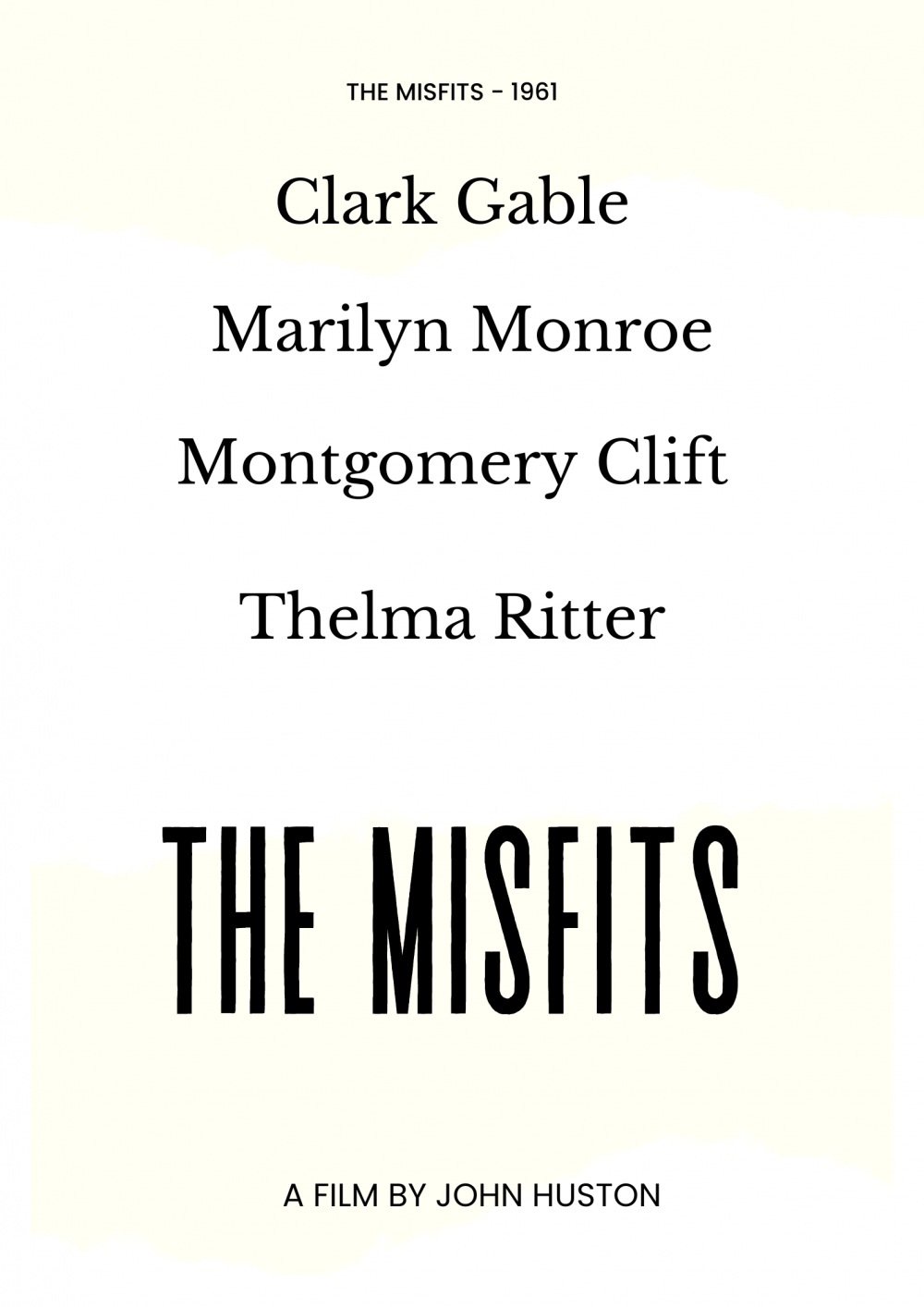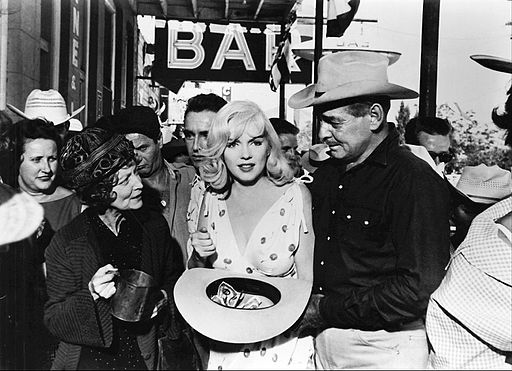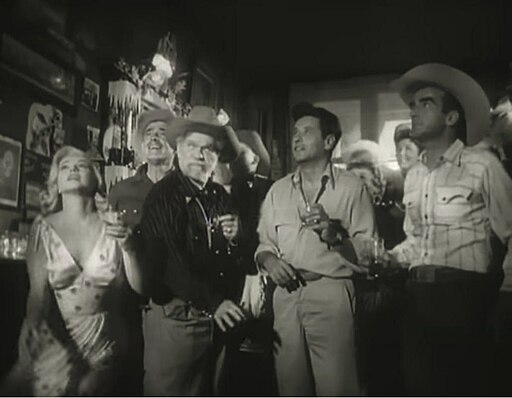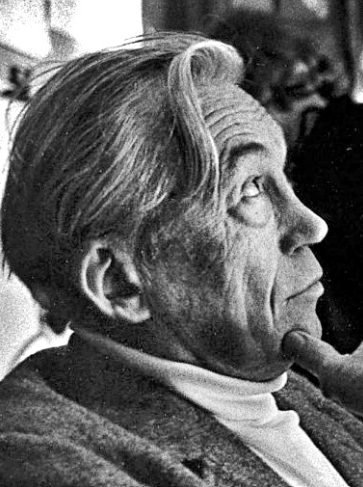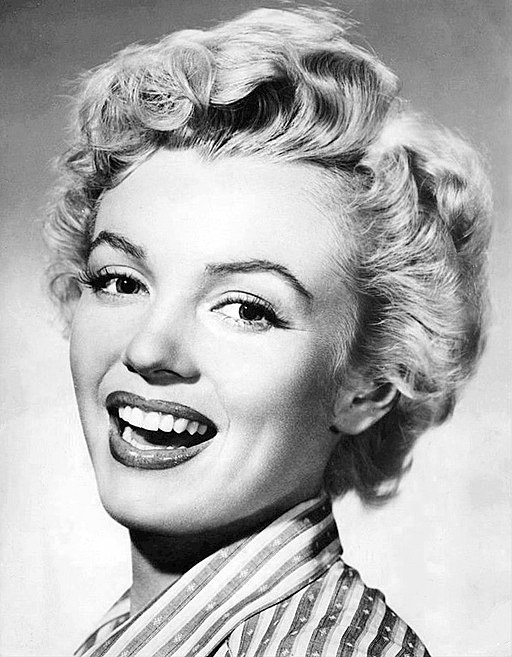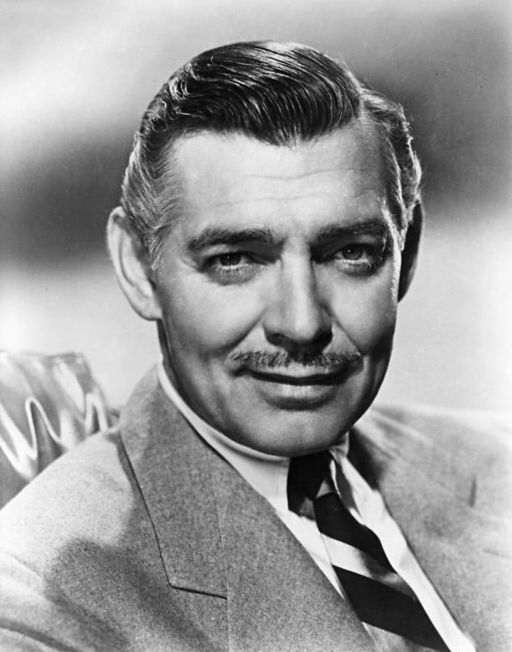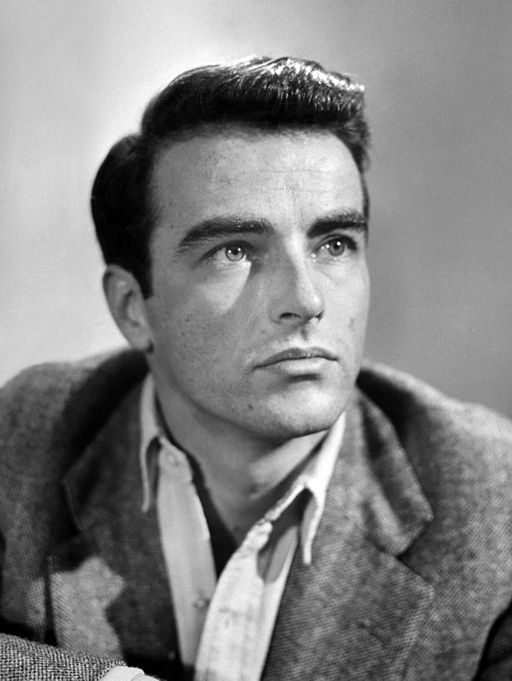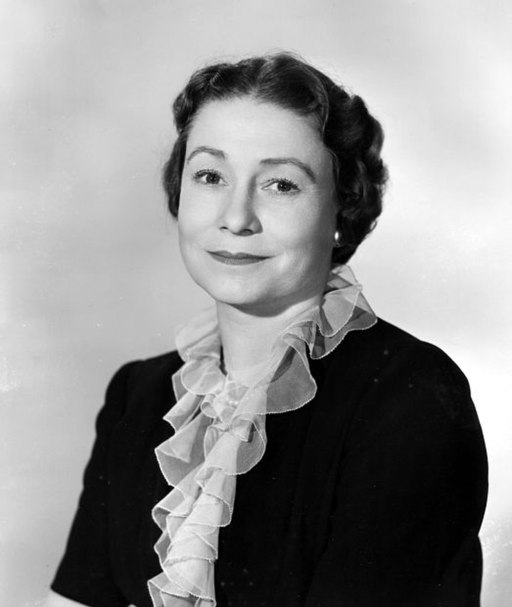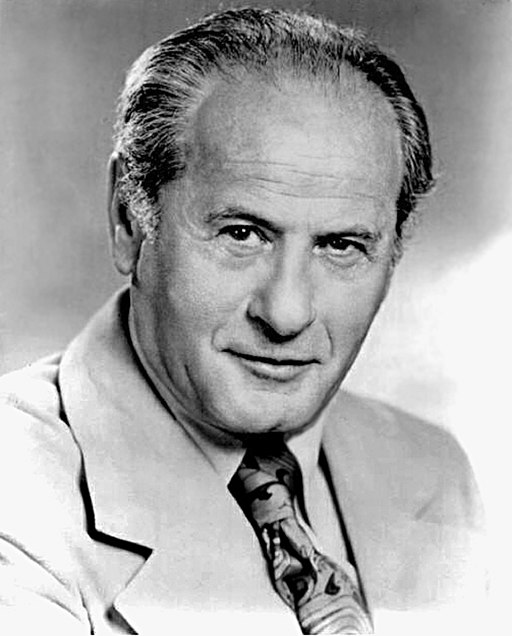The Misfits - 1961
back| Released by | United Artists |
| Director | John Huston |
| Producer | Frank E. Taylor |
| Script | Arthur Miller |
| Cinematography | Russell Metty |
| Music by | Alex North |
| Running time | 124 minutes |
| Film budget | $4 million |
| Box office sales | $4 million |
| Main cast | Marilyn Monroe - Clark Gable - Montgomery Clift - Thelma Ritter - Eli Wallach |
The Misfits
Marilyn Monroe and Clark Gable's last film
"The Misfits" is particularly notable for being the last completed film of both Marilyn Monroe and Clark Gable. The film's production was marked by various challenges, including personal issues of the cast and conflicts on set.
Despite its initial mixed reception, it has since gained status as a classic, appreciated for its performances and Huston's direction.
Related
The Misfits – 1961
"The Misfits," directed by John Huston and released in 1961, is a dramatic film that stands out for its poignant storyline and the star-studded performances of its cast. It was the final completed film for both Marilyn Monroe and Clark Gable, adding a layer of historical significance.
Summary:
The film revolves around Roslyn Taber (Marilyn Monroe), a woman undergoing a painful divorce in Reno, Nevada. While there, she befriends an aging cowboy named Gay Langland (Clark Gable) and his old rodeo friend, Perce Howland (Montgomery Clift). Roslyn, experiencing a personal crisis and seeking a new start, is drawn to these men who represent an old, fading lifestyle of the American West.
Roslyn's presence ignites a spark in Gay and Perce, both of whom are struggling with their own demons and the fading relevance of their cowboy way of life. They are accompanied by Guido (Eli Wallach), a mechanic and pilot, and Isabelle Steers (Thelma Ritter), a wise older woman who provides a maternal presence.
The film reaches its climax in a heart-wrenching horse roundup scene in the Nevada desert. The group sets out to capture wild horses to sell for dog food, an act that symbolizes the brutal realities and moral ambiguities of modern life. Roslyn is horrified by the cruelty and begs them to release the horses, leading to a confrontation that forces each character to face their own disillusionments and moral dilemmas.
Analysis:
"The Misfits" is a poignant exploration of existential angst and the fading of the Old West. It delves into themes of freedom, confinement, and the search for meaning in a rapidly changing world. The film critiques the commercialization and industrialization that have overshadowed the romanticized, free-spirited life of the cowboy.
Arthur Miller's script is both intimate and expansive, drawing heavily on character development to drive the story. His then-wife, Marilyn Monroe, delivers a performance that is both vulnerable and powerful, revealing the depth of her acting abilities. Clark Gable, in his final role, embodies the rugged, fading masculinity of the American cowboy, while Montgomery Clift portrays the struggle of a younger generation trying to find its place in a changing world.
The cinematography by Russell Metty captures the stark, haunting beauty of the Nevada desert, contrasting the vast, open landscapes with the emotional turmoil of the characters. The film's use of real locations adds authenticity to its exploration of the end of an era in American history.
John Huston's direction is masterful, blending the script's existential themes with powerful visual storytelling. The film's pacing and tone reflect the internal struggles of its characters, making "The Misfits" a deeply moving and thought-provoking film.
In summary, "The Misfits" is more than just a film; it's a poignant reflection on change, aging, and the loss of ideals. Its exploration of complex characters caught between a disappearing past and an uncertain future resonates deeply, marking it as a significant piece in the annals of American cinema.
Marilyn Monroe and the Making of The Misfits:
Full Cast of The Misfits:
- Marilyn Monroe as Roslyn Taber
- Clark Gable as Gay Langland
- Montgomery Clift as Perce Howland
- Thelma Ritter as Isabelle Steers
- Eli Wallach as Guido
- James Barton as Fletcher's grandfather
- Kevin McCarthy as Raymond Taber
- Estelle Winwood as a church woman
- Peggy Barton as a church woman
- Rex Bell as a cowboy
- John Huston (the director himself) also makes a cameo appearance in the film
Analysis of the Direction of John Huston:
John Huston's direction in "The Misfits" is a testament to his skill as a filmmaker and his ability to craft a narrative that is both visually stunning and deeply introspective. His approach in this film showcases several key aspects:
Realism and Cinematic Style: Huston was known for his realistic style, and in "The Misfits," he maintains this approach. He captures the vast, open landscapes of the Nevada desert, using these settings not just as a backdrop but as a vital component of the story. The starkness and beauty of the desert parallel the emotional landscapes of the characters. Huston's use of wide shots emphasizes the isolation and vulnerability of the characters in the vast expanse, while close-ups bring an intimate, almost uncomfortable closeness to their emotional states.
Character-Driven Narrative: Huston's focus on character development is evident throughout the film. He allows the actors, especially Marilyn Monroe, Clark Gable, and Montgomery Clift, to explore the depths of their characters. Huston was known for his ability to get profound performances from his actors, and "The Misfits" is no exception. Each character is portrayed with complexity and nuance, reflecting Huston's understanding of human nature and his ability to guide actors in expressing it.
Thematic Exploration: Huston uses "The Misfits" to explore themes of existentialism, disillusionment, and the decline of the Old West. He juxtaposes the freedom symbolized by the open desert with the emotional confinement of the characters. Huston does not shy away from depicting the harsh realities of life, infusing the film with a sense of melancholy and introspection. His direction invites viewers to contemplate the changing American landscape – both physical and metaphorical.
Visual Storytelling: Huston's skill in visual storytelling is evident in the way he constructs scenes. The horse roundup scene, for example, is not just a narrative climax but also a visual metaphor for the struggle between freedom and exploitation, between the old ways and the new. The chaotic, almost brutal nature of this scene contrasts sharply with the more introspective moments shared between the characters, showcasing Huston's ability to balance action with emotion.
Collaboration with the Cinematographer: Huston's collaboration with cinematographer Russell Metty is crucial in achieving the film's visual impact. Together, they create a film that is both a character study and a meditation on a changing America, using the landscape as a character in its own right.
In conclusion, John Huston's direction in "The Misfits" is a masterful blend of realism, character-focused storytelling, thematic depth, and visual sophistication. He crafts a film that is as much a portrait of individual struggles as it is a commentary on broader societal changes, leaving a lasting impact on the viewer. Huston's ability to draw out profound performances and his attention to the human condition are hallmarks of his style and contribute significantly to the film's enduring legacy.
Analysis of the Performance of Marilyn Monroe as Roslyn Taber:
Marilyn Monroe's role in "The Misfits" is one of her most acclaimed and nuanced performances, showcasing her depth as an actress far beyond the typical glamour roles she was often associated with. In the film, she plays Roslyn Taber, a character that is both complex and emotionally rich, allowing Monroe to explore a range of emotions and depth.
Characterization: Roslyn Taber is a woman in the midst of a personal and emotional crisis, having come to Nevada to finalize a divorce. Monroe portrays Roslyn as sensitive, introspective, and vulnerable, yet possessing an inner strength and resilience. This role differs significantly from the more lighthearted, often superficial characters Monroe was known for. Instead, Roslyn is layered and multifaceted, reflecting Monroe's own struggles and vulnerabilities.
Emotional Depth: Monroe's performance is marked by its emotional depth. She brings a palpable sense of melancholy and longing to the character, capturing Roslyn's existential angst and her search for meaning in a world that seems increasingly alien to her. Monroe's ability to convey complex emotions with subtlety and intensity adds a profound dimension to the film.
Physicality and Presence: Monroe utilizes her physical presence to great effect in the film. Her movements and expressions convey Roslyn's emotional state, from moments of joy and playfulness to those of despair and disillusionment. This physicality is not just about her beauty but about using her body language to communicate her character's inner turmoil.
Interaction with Other Characters: Monroe's interactions with the other characters, especially with Clark Gable's Gay Langland and Montgomery Clift's Perce Howland, are central to the film. She portrays Roslyn as both compassionate and empathetic, connecting with these men who are themselves struggling with their own demons. Her ability to hold her own against these seasoned actors speaks to her skills and presence as a performer.
Symbolism: Roslyn, as portrayed by Monroe, symbolizes the changing dynamics of American society in the early 1960s. She represents a new, more introspective and emotionally open perspective, contrasting with the traditional, stoic masculinity embodied by Gable and Clift's characters. Monroe's performance captures this cultural shift, making Roslyn a symbol of change and vulnerability.
Impact on Monroe's Career: "The Misfits" is often considered a highlight of Monroe's career, allowing her to break away from the stereotype of the blonde bombshell and demonstrate her abilities as a serious actress. Her performance in the film is seen as a testament to her talent and potential, which was often overshadowed by her personal struggles and public persona.
In summary, Marilyn Monroe's portrayal of Roslyn Taber in "The Misfits" is a deeply moving and complex performance. She brings emotional depth, physical expressiveness, and a nuanced understanding of the character's psyche. This role stands as a powerful reminder of Monroe's capabilities as an actress, far beyond the confines of the typecast roles she was often given.
Analysis of Clark Gable's Performance:
Clark Gable's role in "The Misfits" is a defining moment in his illustrious career, and it holds a special place in cinema history as it was his final film performance. In the movie, Gable plays Gay Langland, an aging cowboy, grappling with the changing world around him. His portrayal of Gay is both powerful and poignant, providing a complex character study.
Character Depth: Gay Langland is a quintessential representation of the rugged, individualistic American cowboy, a persona that Gable embodied with natural charisma. However, unlike his earlier roles, which often leaned towards the heroic or romantic, in "The Misfits," Gable's character is tinged with a sense of melancholy and existential weariness. He captures the essence of a man out of time, struggling to find his place in a world that no longer values the traditional cowboy lifestyle.
Performance Nuances: Gable brings a remarkable depth to his performance. His portrayal of Langland is nuanced and layered, blending a rough exterior with a vulnerable interior. Gable effectively conveys the inner turmoil of a man who is facing the twilight of his life and career. He showcases a range of emotions, from moments of reflective sadness to bursts of anger and frustration, all the while maintaining a facade of stoicism.
Chemistry with Marilyn Monroe: Gable's on-screen chemistry with Marilyn Monroe is one of the film's highlights. As Gay Langland, he is both a father figure and a romantic interest to Monroe's character, Roslyn. Gable's interaction with Monroe is tender and paternal, yet filled with unspoken romantic tension. This dynamic adds depth to both characters and highlights Gable's ability to adapt his acting style to complement his co-star.
Physicality in the Role: Gable's physical presence is integral to his portrayal of Gay Langland. Despite being in his late 50s during the filming, Gable convincingly portrays a rugged cowboy, participating in physically demanding scenes, including the memorable horse roundup. His physicality not only lends authenticity to the character but also symbolizes the enduring strength and resilience of the traditional American cowboy.
Symbolism of the Role: Gable's role in "The Misfits" can be seen as symbolic of the end of an era in Hollywood. Just as Gay Langland represents the fading of the old West, Gable himself represents the last of the classic Hollywood leading men. His performance in the film is a poignant reminder of the changing times, both in American culture and in cinema.
Legacy: Clark Gable's performance in "The Misfits" is widely regarded as one of his best. It showcased his range as an actor and allowed him to step outside the typecast roles he was often associated with. Tragically, Gable passed away shortly after filming was completed, making his portrayal of Gay Langland a powerful and fitting final chapter in his storied career.
Memorable Quotes from the Movie:
- Roslyn Taber (Marilyn Monroe): "When I was five years old, my mother told me that happiness was the key to life. When I went to school, they asked me what I wanted to be when I grew up. I wrote down 'happy'. They told me I didn’t understand the assignment, and I told them they didn’t understand life."
- Gay Langland (Clark Gable): "Honey, nothing can live unless something dies."
- Roslyn Taber: "We're all dying, aren't we? All the husbands and all the wives. Every minute, and we're not teaching each other what we really know, are we?"
- Perce Howland (Montgomery Clift): "I figure if a man's good at something, I mean really good, he's got a responsibility not to waste it."
- Gay Langland: "If I'm going to be alone, I want to be by myself."
- Roslyn Taber: "You don't have the right to feel sorry for yourself."
- Guido (Eli Wallach): "You know, sometimes when a person don't know what to do, the best thing is to just stand still."
- Roslyn Taber: "I feel like I'm in the middle of a room and everything's moving around me in circles and I'm standing still."
- Gay Langland: "You know, sometimes I think it don't make much difference what we do. We just can't get out of this little circle."
- Roslyn Taber: "I don't feel that way. I think people should live the way they want to."
Awards and Recognition:
While "The Misfits" did not receive substantial recognition from major award organizations at the time of its release, it has since gained critical acclaim and is considered a classic. It is often recognized for its performances, direction, and screenplay.

